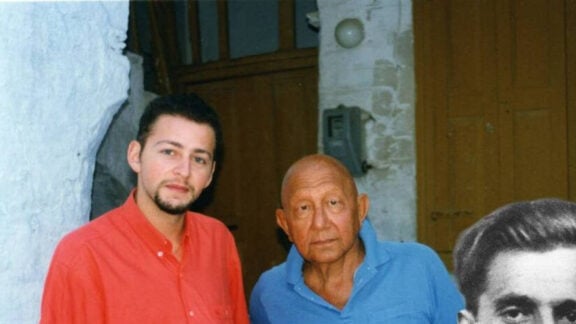The Parole Board of Victoria plays a very important role in the Victorian criminal justice system. It manages the release from jail of offenders on parole. Parole is the conditional release of an offender from custody so that the unexpired portion of their prison sentence is served in the community.
Following the publicity of a number of high profile crimes committed by people released on parole, the Victorian Government commissioned former High Court Justice Ian Callinan AC to carry out a review of the Adult Parole Board.
I fully support the findings of the Callinan Report and reflect on my 30-plus years of experience in dealing with the very wide variety of human beings who come within our justice system.
The safety of individual citizens and the community as a whole is a paramount principle which cannot and should not ever be compromised. It is a principle which in my view, surpasses the freedom of the individual and the rights of a convicted person to be rehabilitated and assume a useful and meaningful role in the community after they have served their sentence.
The Parole Board to date has been woefully under-resourced to do its job properly.
Many of the applicants for parole are damaged individuals with complicated past histories which in turn have a bearing on the psychological and psychiatric profile of the parolee and their propensity to re-offend.
A large number of these people are highly manipulative and a significant number who genuinely are not deliberately manipulative, are nonetheless extremely damaged. The sort of damage which makes it very difficult for them to lead useful lives which do not create problems or damage for themselves or others.
Then we have offenders who are very unlikely to ever re-offend again. They have a genuine desire and ability to rebuild their lives constructively. It could have been any one of us or any of our children in this category through one bad or stupid decision.
The challenge is to sort out which is which in the applicants.
A Parole Board needs expert staff and very significant resources to assess the applicants properly before making the decision to release them. A one or two hour psychiatric assessment is simply inadequate.
I have been in hundreds of cases where dangerous people were assessed as being psychologically fit and healthy in a forensic examination, and yet when they were observed in court over many hours, it was obvious to everyone that they were not sound.
The opposite is also true. I have been involved in many cases where there was a misdiagnosis and perfectly fine, decent people were assessed as suspect. This has occurred in cases where a person has been a poor communicator even though they are telling the truth. They simply do not have the skills to explain a situation effectively, coherently and consistently. They don’t sound truthful when in fact they are.
One of the worst examples I was involved in was a situation where a very shy, lonely man with a stutter was misdiagnosed by several forensic experts, each of whom had only assessed him clinically after approximately 1-2 hours observation.
He came dangerously close to being banned from seeing his son but when the truth came out after a careful and protracted court case, it was ordered that the child live with him and the mother be banned from having any contact. The mother, who had been a very convincing communicator, had fooled several experts.
If the experts had had a broader range of evidence upon which to make their assessment, I am confident that this injustice would have been prevented earlier and it would not have taken seven years to get to the truth.
On the other hand, it is scary to observe articulate convincing people who are very impressive at first blush only to find out subsequently that the facade is a veneer for a personality disorder or a highly manipulative manner which can have catastrophic consequences upon the lives of those unfortunate to be taken in by the false charm.
In this category is a doctor who has impregnated his own daughter and caused her multiple abortions. And yet, at first instance he appeared to be a respectable, believable citizen. Without all the information, it would be easy to be taken in by his presentation.
The more information the forensic examiner has from a variety of sources and over a period of time, the greater the probability of obtaining an accurate diagnosis. Simply interviewing a person for an hour or so has proven to be completely inadequate and serves very little purpose. One snapshot view of a person tells us very little about the true profile of that person.
Imagine then, how totally inadequate it has been for the Parole Board to make their decision without even interviewing the applicant. It is completely unacceptable to burden the Parole Board with so many applications that each one can only be afforded a few minutes. It has been a scandalous situation.
The Parole Board, with its historically massively under resourced structure, had very little chance of addressing its responsibilities properly.
If we are serious about the principle of protecting the community as well as the principle of helping those who can be rehabilitated, the Parole Board must, at the very least, be comprised of experienced lawyers, psychiatrists and psychologists who know what to look for and are properly resourced to do their job responsibly.
The supervisors overseeing the release programs also need to be trained thoroughly to spot when they are being manipulated and how we can re-channel the offenders.
Then we have the challenge of what to do with those who have fully served their sentence but, for a variety of reasons, are unlikely to fit back into the community without some sort of trouble. A civilized democracy cannot just lock them up for ever. We must not do anything which brutalises them further and renders them non-functional in society.
I beg us to raise this debate above the barbaric, ignorant slogans which involve suggestions of just doing away with such people. The issue is too critical for such unhelpful dismissals of complex human problems. Our decisions should be based on truthful, informed data and analysis.
A humane, intelligent, sophisticated and informed society will try to understand why this problem exists and do something about preventing it in the first place.
If the genesis of the problems cannot be alleviated, then we must look at what can be done to minimise the risks.
This will not mean that we can create perfection but it will be a much more effective way to really address the problems and make a difference for everybody. Even if all we can achieve is some improvement, that is far more advantageous to all of us than the system we have had to date.
The unfortunate and neglected or abused start to life experienced by many of these prisoners gives us a clue on what areas we should begin to focus upon. What we do and how we do it are topics for much more investigation.
The issues are way too important to us all to continue with a system done on the cheap. Much greater financial resources and very experienced personnel are only the start of what this issue urgently requires.
*Olyvia Nikou SC is the first person born in Greece to gain QC/SC status in Australia.
Advertisement
Recasting Victoria’s parole system
What price will safety and individual rights pay?








